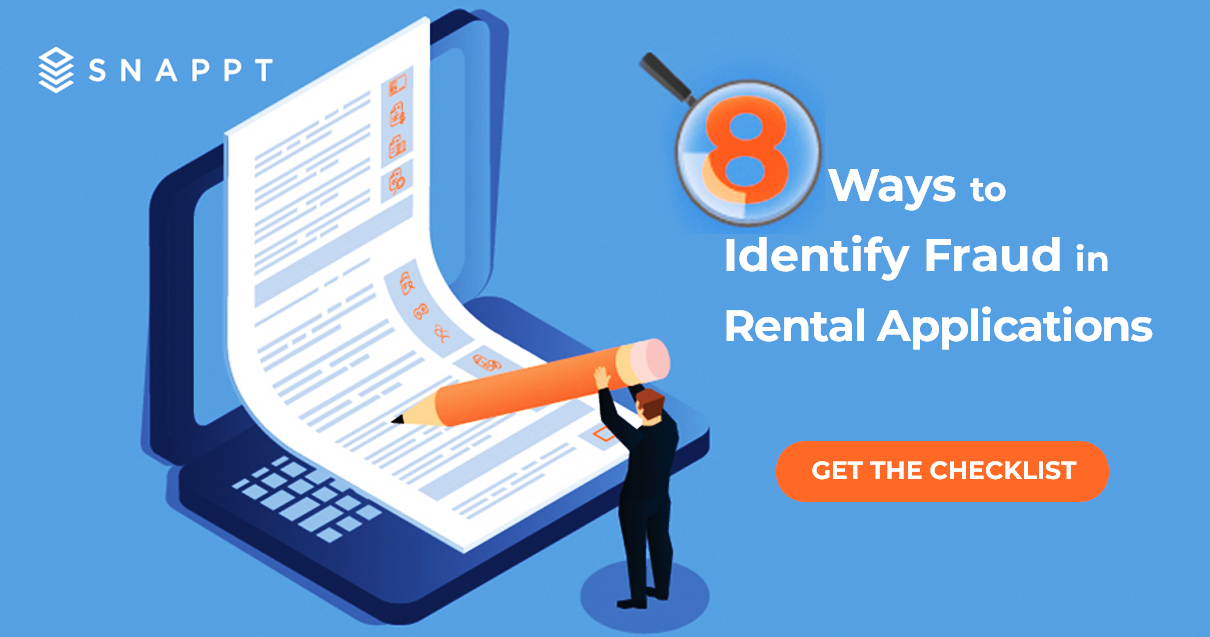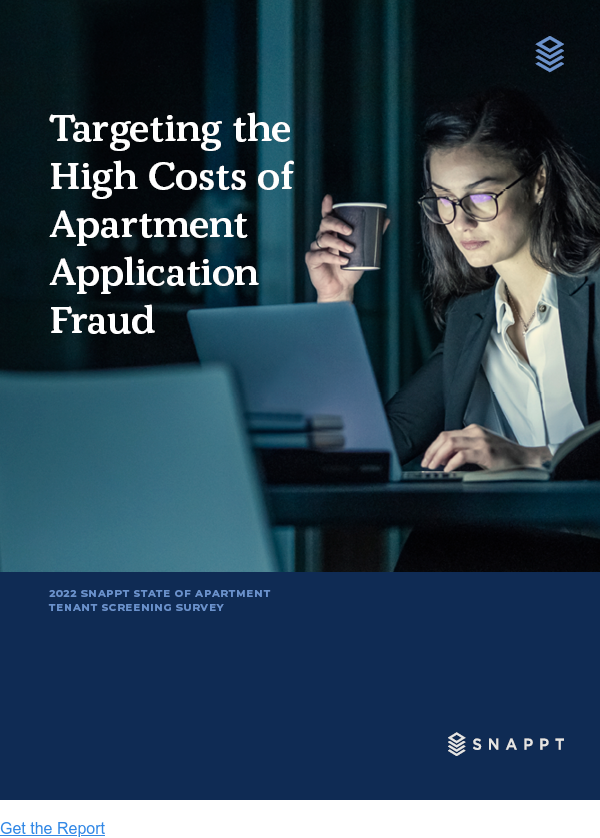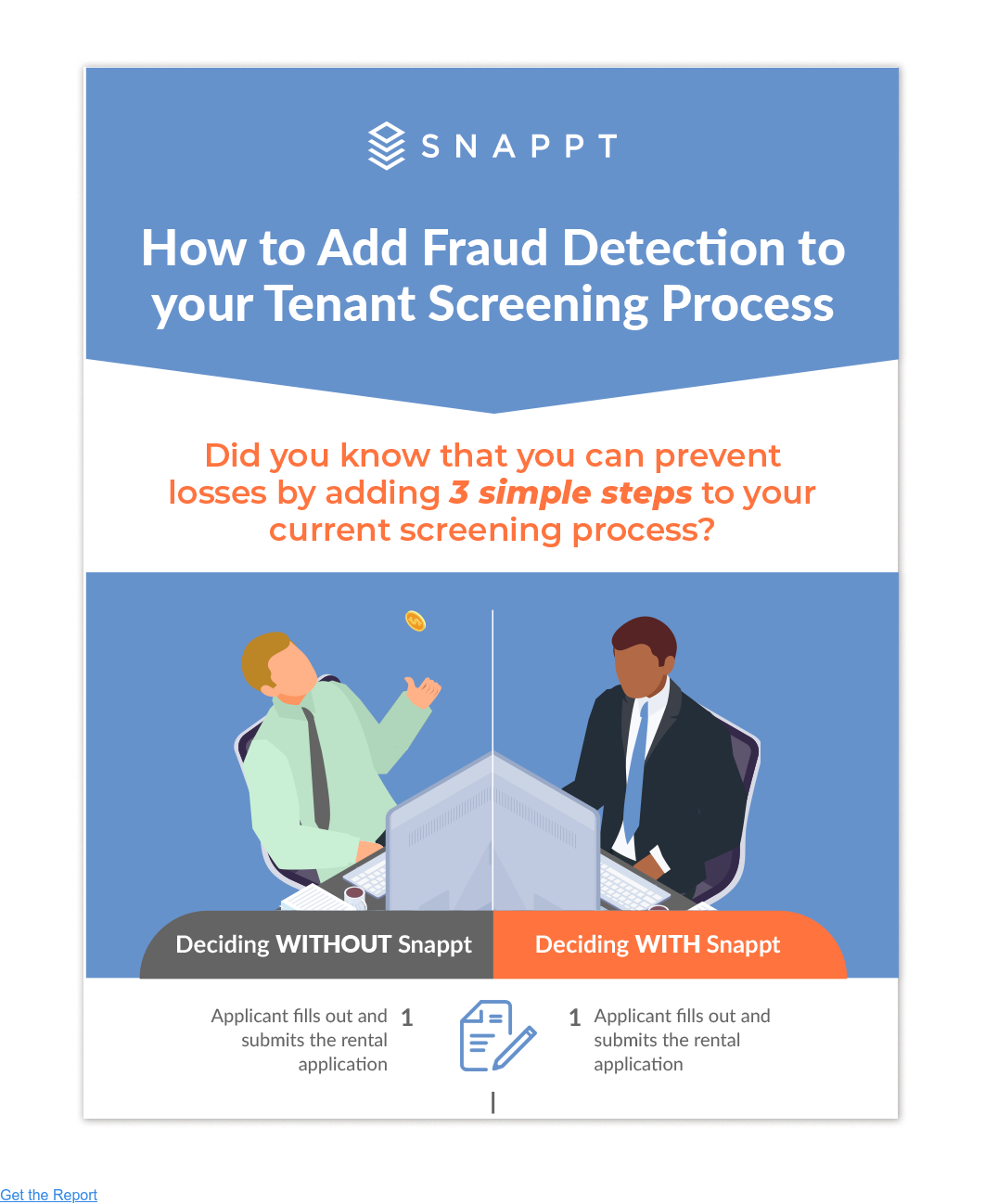The global pandemic of 2020 affected us all in many ways, including how the residential rental industry must conduct business. Unprecedented unemployment levels and social distancing requirements have changed the way landlords must maneuver to keep their tenants happy and their residential portfolios in the black. Thorough resident screening is more important than ever to mitigate risk by identifying possible troublesome tenants before they move in.
Residential rental applications: The basics
Finding the right renters means you’re minimizing loss and maximizing revenues on a tenant by tenant basis. There are many tools and methods available to property managers to get the job done, but at the end of the day, it is up to each property manager to refine their practices to suit their level of risk.
Property management software provides many types of tenant screening reports that make it easier than ever to evaluate residential applicants. These offerings include access to tenant history databases that provide data about a potential tenant’s past evictions, property damage, lease violations, unpaid rent, credit reports, criminal records and terrorist watch searches. These companies have evolved and have made managing properties at scale easier than ever before.
How has residential screening changed?
More rentals are viewed and secured online than ever before, and while this offers convenience, it opens opportunities for fraud. Even non-criminally minded individuals may be tempted to commit rental application fraud with easy-to-commit text alteration fraud. Documents with Text Alteration have been edited either by adding new information, typically numbers, names or addresses, or removing information such as liens, etc. This type of fraud is easy to commit, as it only takes a scanner and some photo editing software, which most Americans have in their homes.
Common Types of Text Alterations we see on financial documents:
- Name changes – It’s easier to alter a financial document that it is a government-issued ID. Check for discrepancies as the document may be altered or even stolen
- Adjusted Incomes – Inflation or deflation of income is also common practice these days. Adjusted incomes can fraudulently grant the applicant approval for a unit they wouldn’t qualify for otherwise.
- Altered sources of income – This can be a sign of criminal activity or be an entity created by the applicant to falsify income
Other types of scams to look out for when screening potential residential applications:
- Template farms – This type of fraud is increasingly popular because of its accessibility. These are fake documents that people can download online and attempt to pass off as legitimate. (Note: Spirited has a database of known template farms and will flag them for you!)
- Fake references - References can be faked by friends, family, and hired companies. Typically, you can tell if a reference is fake by looking up whether the given name on the application matches the property ownership or business registration.
- Identity theft - Millions of people have fallen victim to identity theft, and the number is growing each day. If you can’t meet your applicant in person, schedule a video chat to review the application.
- Synthetic fraud – Is your applicant a real person, or is it a completely false creation? Synthetic fraud is a fake identity created from multiple sources, so check for inconsistencies. If multiple things don’t match up, it’s an indicator that the applicant is using a synthetic identity.
- Falsified credit reports – Be sure to do your own criminal and credit checks with reputable providers and cross-check the rental application.
Residential Application Screening with Spirited
Financial document fraud is easy to commit yet difficult to detect. Using Spirited’s financial document fraud assessment tools, you remove fraudulent applicants from the rest, meaning lower risk for both you and your properties. You are provided with confirmation that you’re are evaluating the right data, making tough decisions easy, all within compliance and regulatory guidelines.
With Spirited, you can upload your digital documentation for image and historical analysis as well as a data-driven review using algorithms tuned to catch document manipulation. Within 24 hours, Spirited certifies whether the documentation is fraudulent or authentic. Our unique software has prevented missions of losses in this year alone. How much can Spirited save you? Try the ROI calculator.











